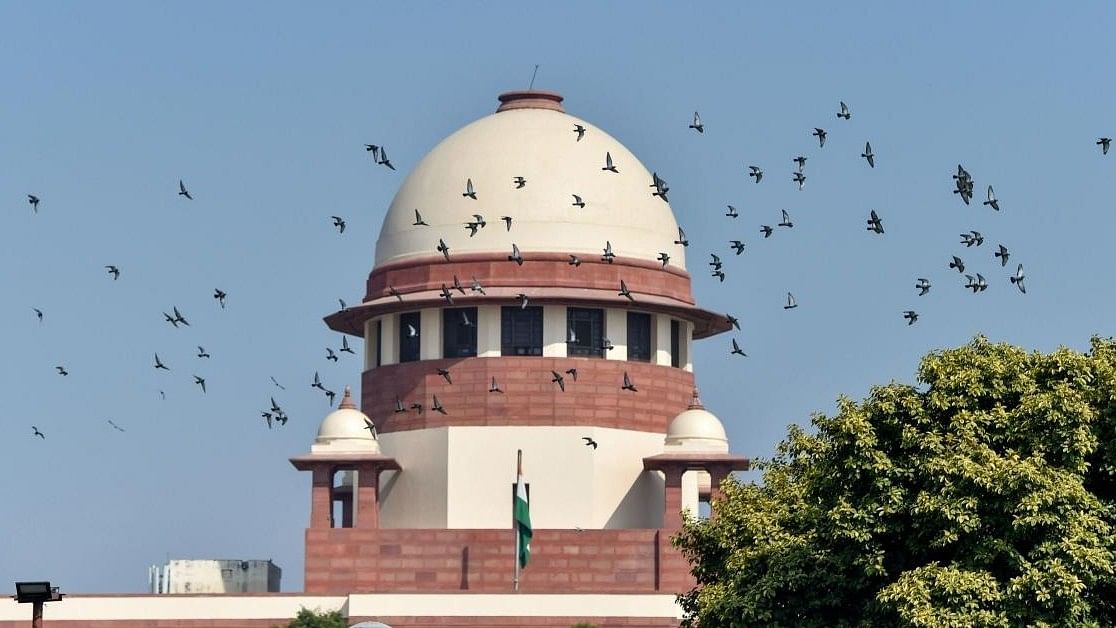
A view of the Supreme Court.
Credit: PTI File Photo
New Delhi: In a major decision, the Supreme Court on Tuesday held a complaint filed against lawyers under the Consumer Protection Act would not be maintainable as services rendered by professionals would not come within the purview of the law.
A bench of Justices Bela M Trivedi and Pankaj Mithal said having regard to the role, status and duties of the advocates as the professionals, legal profession is sui generis i.e. unique in nature and cannot be compared with any other profession.
The court also said neither a profession could be treated as business or trade nor the services provided by the professionals could be treated at par with the services provided by the businessmen or the traders, so as to bring them within the purview of the CP Act.
"The very purpose and object of the CP Act 1986 as re-enacted in 2019 was to provide protection to the consumers from unfair trade practices and unethical business practices, and the Legislature never intended to include either the professions or the services rendered by the professionals within the purview of the said Act of 1986/2019," the bench said.
In his separate judgment, Justice Mithal said the services of professionals more particularly that of lawyers have to be excluded from consumer protection law in accordance with the intention expressed in enacting it.
"The legislature in India as in some other countries had not intended to include the services rendered by the professionals especially the lawyers to their client within the purview of Consumer Protection Act, 1986 and re-enacted in 2019," he said.
The court opined a three-judge bench decision in the 1995 case of 'Indian Medical Association Vs V P Shantha and Others' -- which brought services rendered by medical practitioners within the definition of services under the CP Act -- should be revisited by a larger bench.
"In our humble opinion, the said decision deserves to be revisited having regard to the history, object, purpose and the scheme of the CP Act," the bench said.
The court explained the legal position while setting aside a 2007 NCDRC's judgment which stated that a complaint for deficiency of services would be maintainable against the lawyers.
Highlighting unique attributes of legal profession, the bench said advocates are not entitled to make concessions or give any undertaking to the court without express instructions from the client and it is his solemn duty not to transgress the authority conferred on him.
The bench also pointed out people repose immense faith in the judiciary, and the Bar being an integral part of the judicial system has been assigned a very crucial role for preserving the independence of the judiciary, and in turn the very democratic set up of the nation. The advocates are perceived to be the intellectuals amongst the elites and social activists amongst the downtrodden, it said.
Thus, the court held, "A service hired or availed of an advocate is a service under “a contract of personal service,” and therefore would fall within the exclusionary part of the definition of “Service” contained in Section 2 (42) of the CP Act 2019.
It also noted comprehensive provisions are contained in the Advocates Act, 1961 and the Bar Council of India Rules, to take care of the professional misconduct of the advocates, prescribing the punishments too.
